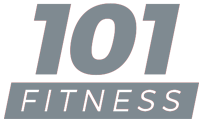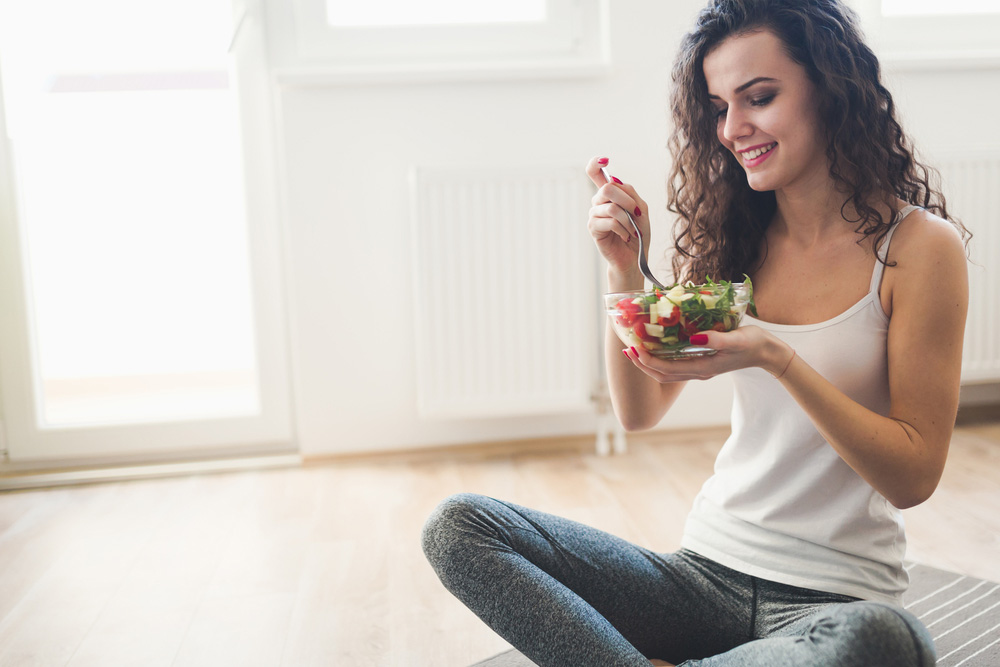
Vegetarian nutrition and fitness?
You must have seen this trend lately on blogs and social networks. More and more people opt for a vegetarian diet, particularly among the fitness community. Basically, it consists in a plant-based diet, cutting out meat and sometimes fish. Eggs, dairy food and honey are still allowed though.
Is vegetarian diet compatible with fitness?
Actually, any healthy diet is compatible with fitness. You just need to balance your macro and micro nutrients. What does it mean exactly?
You have to balance your meals between the 3 macro nutrients: carbohydrates, fats and proteins. It is the combination of these 3 that constitutes a healthy diet and will give you enough energy for working out and growing muscles.
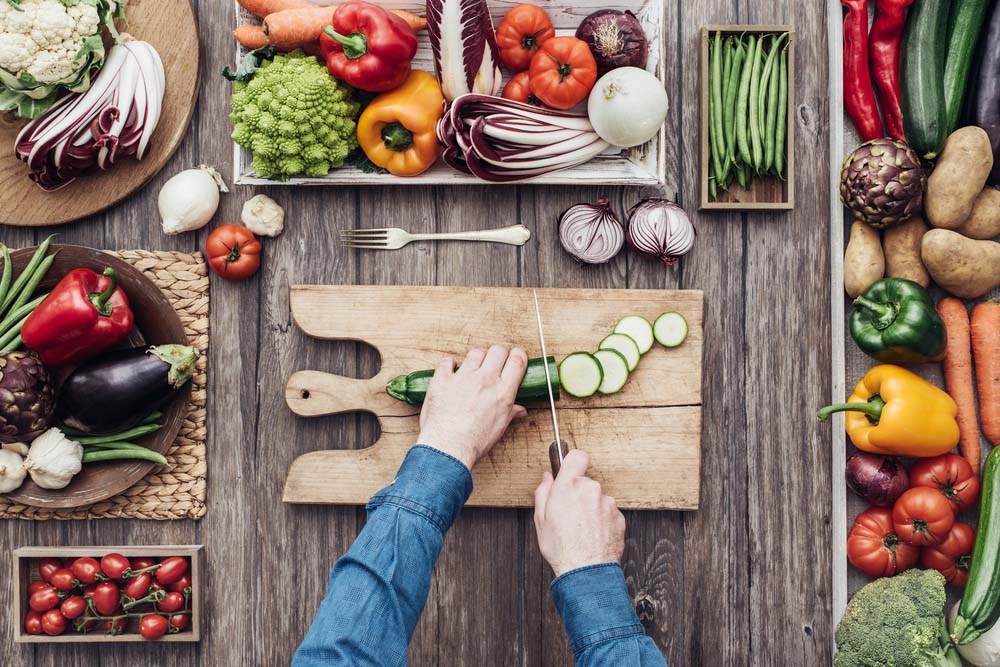
• Proteins
The first questions people ask about being a vegetarian and practising fitness are « will I get enough proteins? » « Is it possible to grow muscles without meat? ». First of all, keep in mind that meat and fish are not the only food containing proteins! You can substitute them for eggs, dairy products or even combination of grains and legumes. However, if you train intensively, your body needs extra proteins as they help repair and build muscles. A few chickpeas a day are not enough. You need to measure your proteins intake and vary your sources of proteins. One tip is to choose carbs and proteins-rich foods such as quinoa or lentils. Another one is to choose meat substitutes which present the same energy profile as meat : tofu for instance or seitan.
• Carbohydrates
Vegetarian diets are full of diverse and essential carbs : vegetables, fruits, legumes, whole grains, pastas, bread. As carbohydrates are the first source of energy for your body, they should represent the biggest part of your daily calories intake, up to 50 or 60%.
• Fats
Like carbohydrates, fats fuel your body. But not all fats are equal. Saturated and trans fats can lead to bad cholesterol and increase the risk of heart disease. You can find good fats in nuts, seeds, avocados, olives… Add a little of them in each of your meals!
One of the advantages of the vegetarian diet is that it is full of micro nutrients : legumes, whole grains, vegetables and fruits provide for vitamins, calcium and antioxidants.
Then there is no reason to think that vegetarian nutrition and fitness can’t be compatible. If you worry about not having enough energy for exercising, think about athletes such as Sury Bonaly or Chris Campbell who manage to combine vegetarianism and high-performance sports. Besides, don’t forget that when it comes to high level sports, athletes are under the care of nutritionists.
Vegetarian nutrition for weightloss
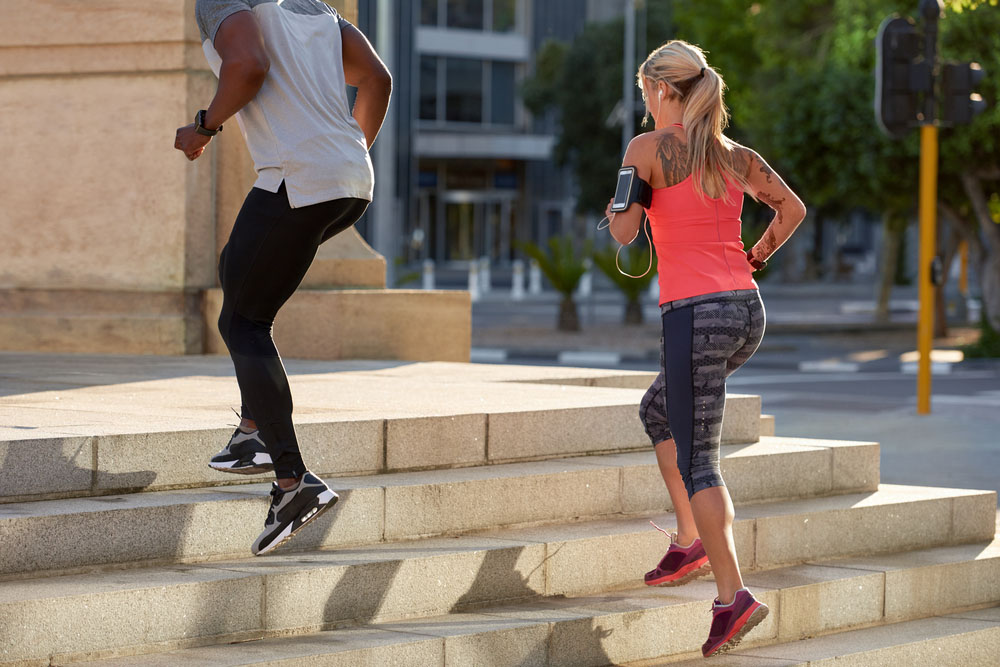
Vegetarianism can help you get the results you want. Indeed, a lot of people feel better and lose a few pounds when starting a vegetarian diet. It does not mean that meatless diets are the miracle solution for weightloss though. Vegetarians more regularly pay attention to eating healthy and reading nutrition labels.
In addition, vegetarianism consists in higher intakes of fruits, vegetables, dietary fibers, antioxidants and lower intakes of saturated fats. That directly leads to lower risks of heart diseases, diabetes and even some cancers! On the other hand, all vegetarian foods are not healthy. You can find vegetarian junk food and you can overeat on a plant-based diet.
Examples of vegetarian recipes for fitness
You can find a lot of vegetarian recipes on the 101 Fitness app. Here is an example of a vegetarian meal plan for one day:
• Breakfast – Cinnamon porridge with bananas and berries
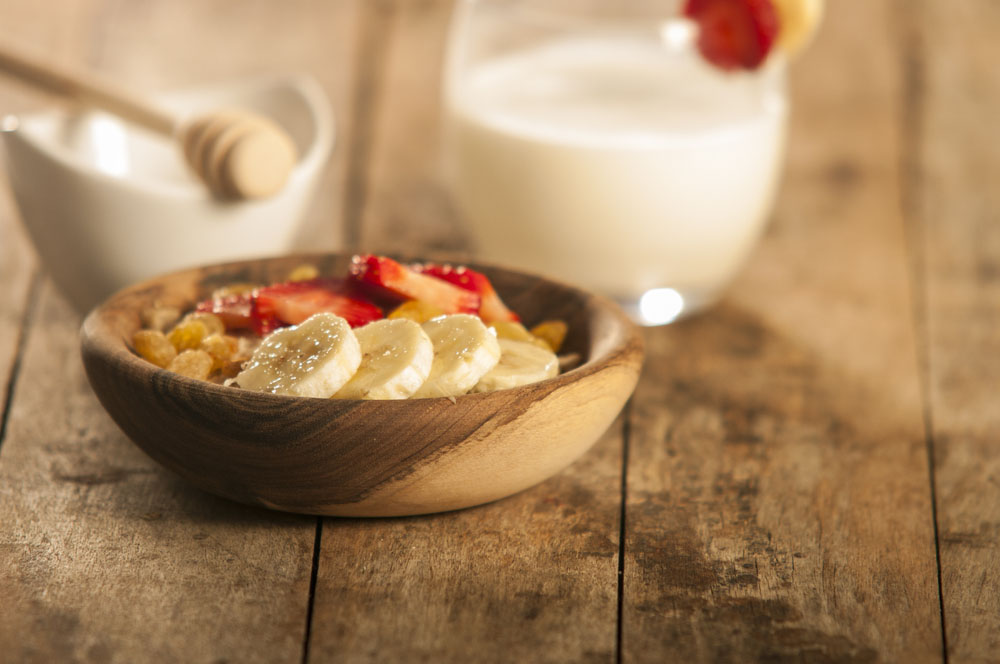
Ingredients for 4 persons:
100g porridge oats
½ tsp cinnamon
4 tsp sugar (optional)
450ml skimmed milk (or almond milk)
3 bananas, sliced
400g strawberries
150g fat free yogurt (or soy yogurt)
Recipe:
In a medium-sized saucepan, mix the oats, cinnamon, sugar, milk and half the sliced bananas.
When it boils, turn down the heat and cook for 4-5mins. Keep stirring all the time!
Remove and divide the porridge between 4 bowls. Top with the remaining bananas, strawberries, some yogurt and a sprinkle of cinnamon.
• Lunch – Tuna, asparagus and white bean salad
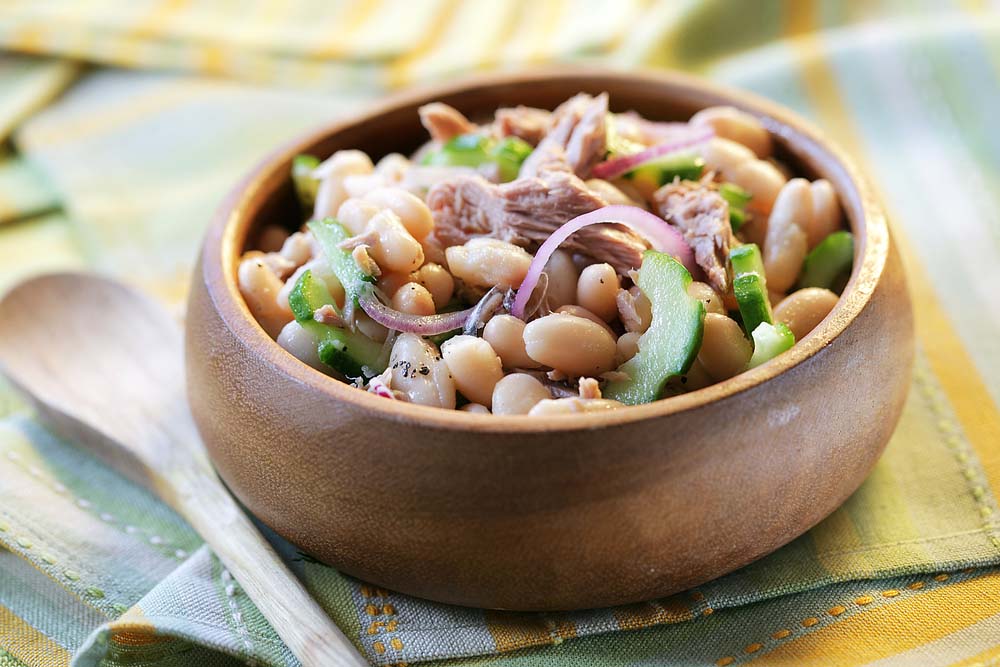
Ingredients for 4 persons:
1 large bunch asparagus
400g canned tuna
800g cannellini beans
1 red onion, very finely chopped
1 tsp red wine vinegar
2 tsp capers
1 tsp olive oil
2 tsp tarragon, finely chopped
Recipe:
Cook the asparagus in a large pan of boiling water for 4-5mins until tender.
Drain well, cool under cold water and cut the asparagus into finger-length pieces.
Toss together the tuna, beans, onion, capers and asparagus in a large serving bowl.
Mix the oil, vinegar and tarragon together, then pour over the salad.
• Snack – Avocado and strawberry smoothie
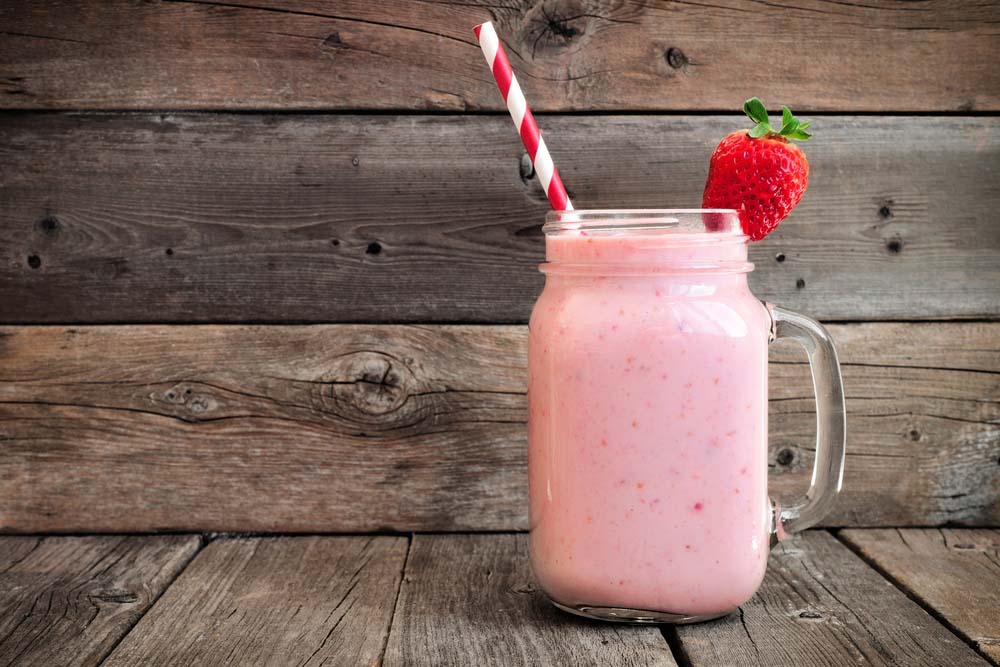
Ingredients for 2 persons:
½ avocado, peeled and cut into chunks
150g strawberries, halved
4 tsp low-fat natural yogurt (or soy yogurt)
200ml semi-skimmed milk (or almond milk)
lemon juice (optional)
honey (optional)
Recipe:
Put all the ingredients in a blender and whizz until smooth.
If the consistency is too thick, add a little water.
• Evening meal – Lentil and sweet potato curry
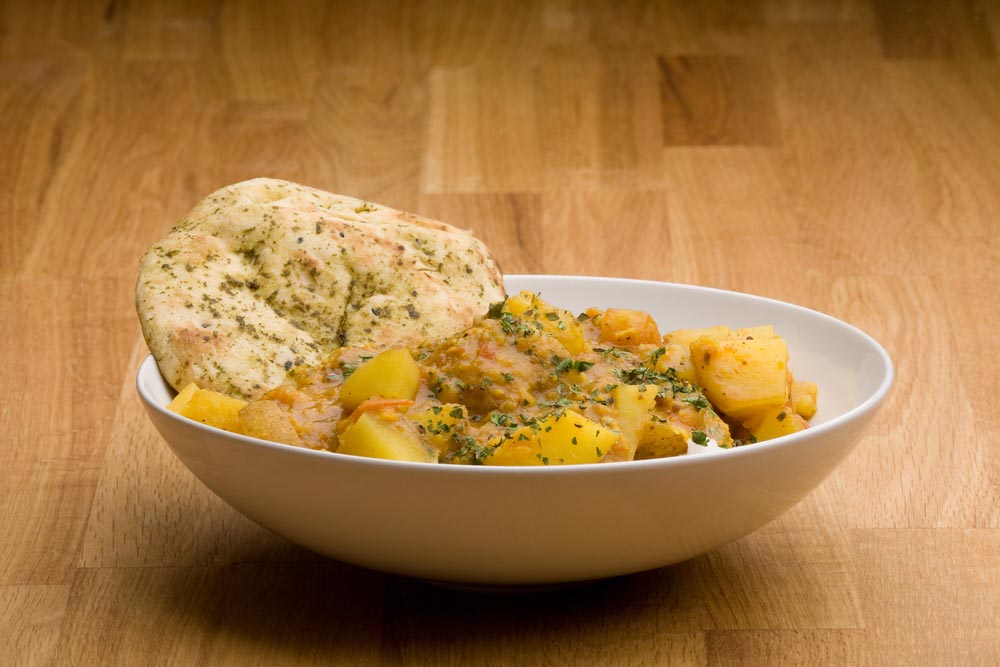
Ingredients for 2 persons:
2 tsp olive oil
1 red onion, chopped
1 tsp cumin seed
1 tsp mustard seeds
1 tsp curry powder
100g lentils
2 medium sweet potato peeled and cut into chunks
500ml vegetable stock
400g can chopped tomatoes
400g chickpeas, drained
Natural yogurt and naan bread, to serve
Recipe:
Heat the oil in a large pan, add the onion and cook for a few mins until softened. Add the spices and cook for 1 min more, then stir in the lentils, sweet potatoes, stock and chopped tomatoes.
Bring to the boil, then cover and simmer for 20 mins until the lentils and sweet potatoes are tender. Add the chickpeas then heat through
Serve with yogurt and naan bread.
Vegetarian or vegan?
The biggest difference between vegetarianism and veganism is that veganism is totally meatless and dairy-free. Being 100% vegan is really hard in everyday life, especially if you want to go and eat outside with friends! It can be complicated and lead to social isolation. So think of what your motivations truly are and don’t start a diet in which you would feel like you miss something.
If after reading this article you still don’t know if you want to go vegetarian, give it a try at first. You can start with a two weeks diet and then see if it suits you. What works for somebody does not necessarily work for someone else. So before believing in bloggers or athletes, believe in yourself!



